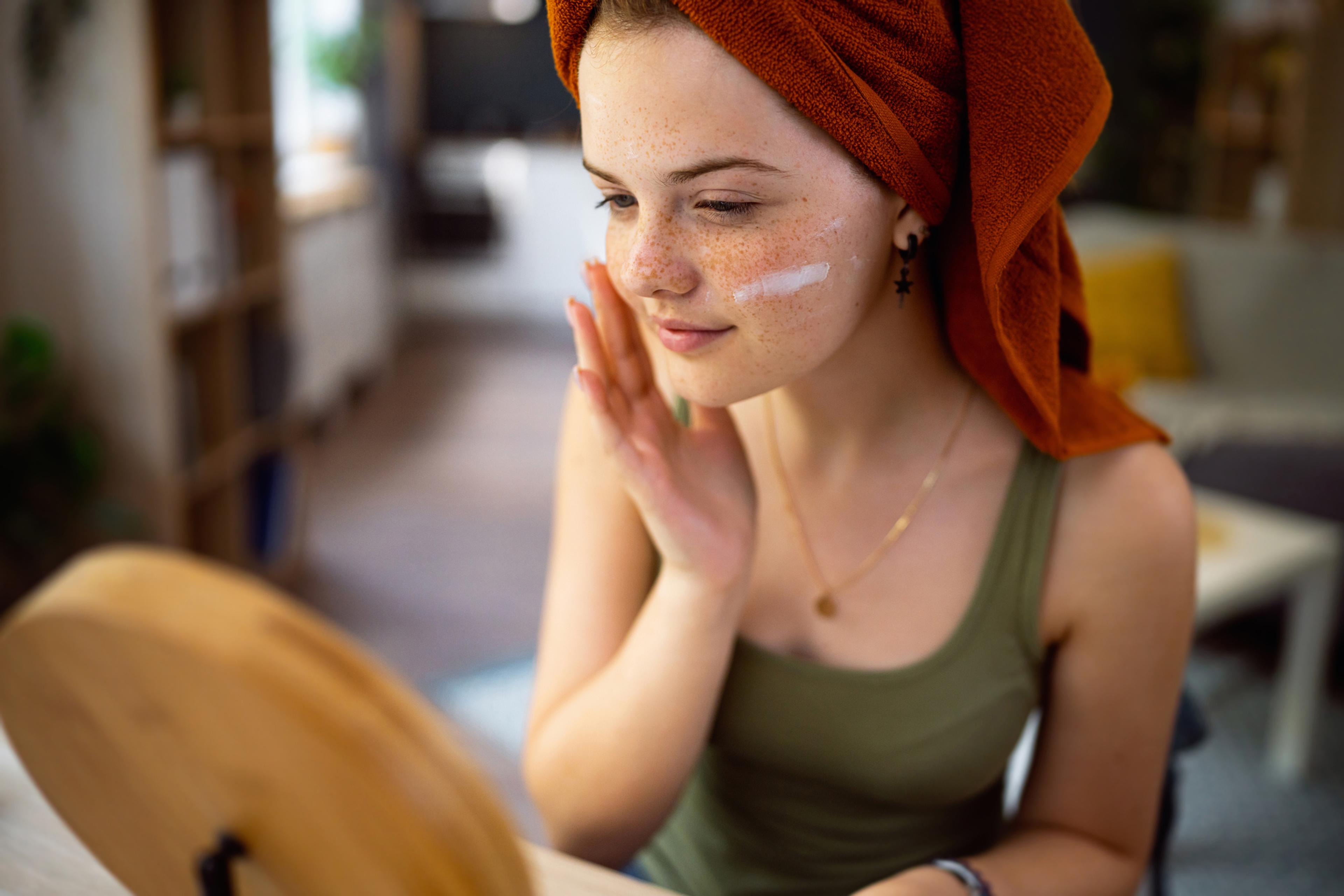Skin Care Products Teenagers Should Not Use

Lindsay Knake
| 4 min read

While elaborate skin care routines are all the rage among pre-teens and teens, many popular products can cause damage to their skin.
Influencers on social media are touting products such as retinol and Vitamin C serums, and skincare products have colorful, fun packaging that can appeal to adolescents. The products promise glowing, healthy skin and anti-aging benefits. However, these luxury and often pricy items are not suitable for children and teens, according to the University of California Los Angeles (UCLA) Health. Adolescents have more collagen in their skin, and they do not have fully formed skin barriers.
Learn what products adolescents should avoid and how to build a safe skin care routine.
Four skincare products teenagers should not use
Retinol
Retinol is a vitamin A product used to treat acne, brighten dark spots and reduce the appearance of fine lines. Children and teens should not use retinoids, which are too strong for their skin barrier, unless advised by their doctor. Retinoids can dry the skin, cause irritation and damage, according to the Children’s Hospital of Orange County. One side effect is a rash called retinoid dermatitis. Retinols can also make people more susceptible to sunburn.
Vitamin C
Should teenagers use Vitamin C serum? The answer, quite bluntly, is no. Also known as L-ascorbic acid, vitamin C can protect skin from damage from ultraviolet radiation and pollution, according to the Cleveland Clinic. Vitamin C also has anti-aging benefits and helps boost collagen production, which makes it popular for skincare. However, teenagers should not add any Vitamin C serums to their routine as these can be too strong.
Alpha- and Beta- Hydroxy Acids
Two acids, Alpha- and Beta- Hydroxy Acids or AHA and BHA, are exfoliants and can improve hyperpigmentation, according to the National Library of Medicine. These products can increase sun sensitivity, which can lead to skin damage. Like the others, AHAs and BHAs aren’t suitable for the developing skin barrier of children and teens.
Peptides
Peptides are strings of amino acids used in skincare products to improve collagen and elastin, according to the Cleveland Clinic. These products may have anti-inflammatory benefits and reduce signs of aging in skin. However, research is limited on peptides, and adolescents should not use any product that promises anti-aging benefits.
Four skincare products teens should use instead
Gentle cleanser
Washing daily with a gentle facial cleanser is especially important for children age 8 and older. During these pre-puberty years, adolescents have increased oil, more clogged pores and breakouts. Common drugstore brands work well for children and teens, according to UCLA Health.
Adolescents shouldn’t scrub their face harshly as that can irritate the skin. Instead, wash skin gently with warm rather than hot water.
Light moisturizer
Next, children and teens can apply a light, oil-free moisturizer. The skin is our largest organ and keeping it well-moisturized will help keep it healthy.
Sunscreen
UV rays are harsh on the skin and cause damage over time, making sunscreen the most important step for young people to prevent sunburns and reduce risk of skin cancer. Children 6 months and older and teens should wear an oil-free sunscreen with SPF of at least 30 every morning.
Benzoyl Peroxide
If teens are dealing with acne, they could use benzoyl peroxide. This is an over-the-counter topical cream that can kill acne-causing bacteria and reduce oil production, according to the American Academy of Pediatrics. Teens should not pick at their skin or pop pimples, which can cause infections and scarring. If an adolescent is struggling with acne, talk to their doctor or a dermatologist.
In general, children and teens should avoid any products that promise brightening, exfoliating, tightening, wrinkle-reducing and anti-aging, according to the Mayo Clinic.
For healthy skin, children and teens should:
- Wash their skin gently
- Wear sunscreen daily
- Remove makeup before bed
- Regularly clean makeup brushes
- Perform a patch test with new products: apply a small amount of a new product to the forearm to see if there is a reaction to it.
- Don’t smoke
- Don’t use tanning beds
- Get plenty of sleep
- Hydrate and eat a healthy diet
If a child or teen in your life is worried about skin care and aging, have a conversation with them. Listen to their concerns about their skin and remind them no one has perfect skin. The best way for them to have healthy skin is to create a minimalist routine until they are an adult.
Image: Getty Images
Related:





